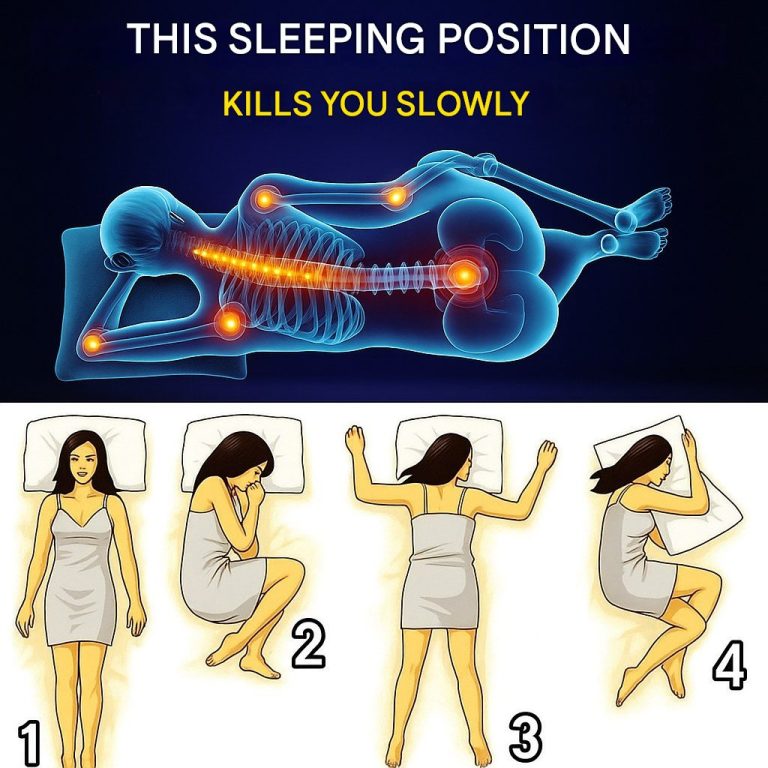Sleeping on your stomach (prone position) is considered by many experts to be the riskiest position for the body. Although some people feel it is comfortable, this pose puts pressure on vital organs and affects the natural alignment of the spine.
Why is it dangerous?
- Pressure on the heart and lungs: Sleeping on your stomach hinders chest expansion, which can affect breathing and oxygenation during the night.
- Tension in the neck: when you turn your head to the side to breathe, an imbalance is generated in the cervical spine that, over time, can cause chronic pain.
- Abdominal compression: This position presses on the stomach and intestines, which can affect digestion and cause discomfort.
- Spinal problems: The natural curve of the spine is forced, which can trigger back pain or even postural problems.
What is the best sleeping position and why?
Sleeping on your side, especially on your left side, is considered the healthiest posture for most people. This position supports several functions of the body:
- It improves blood circulation, especially in pregnant women, by reducing pressure on the vena cava.
- It promotes digestion, by allowing organs such as the stomach and pancreas to function more efficiently.
- It reduces acid reflux and heartburn, especially if you sleep on your left side.
- It decreases snoring and improves breathing, which is helpful in people with sleep apnea.
Sleeping on your right side is also acceptable, but it can increase reflux in some people. The supine (face up) position is good for the back, but not always recommended for people with breathing problems or sleep apnea.
Tips to improve your sleeping posture
- Avoid sleeping on your stomach: If you’re having trouble changing this habit, try placing a pillow on your abdomen or using a hug pillow, which can help keep you on your side.
- Use a suitable pillow: not too high or too low. It should keep your neck in line with your spine.
- Pillow between your legs: If you sleep on your side, place a pillow between your knees to reduce stress on your hips and lower back.
- Firm but comfortable mattress: a good mattress is key to maintaining proper posture and avoiding pain.
- Sleep routine: Maintaining regular schedules and avoiding screens before bed also improves sleep quality.
The way we sleep may seem like a minor detail, but it actually has a big impact on our health. Sleeping on your stomach is one of the worst choices, while resting on your side, especially on your left, provides multiple benefits. Changing posture can take time, but the results are worth it. Listen to your body and take care of your rest: it is the basis of a healthier life.
